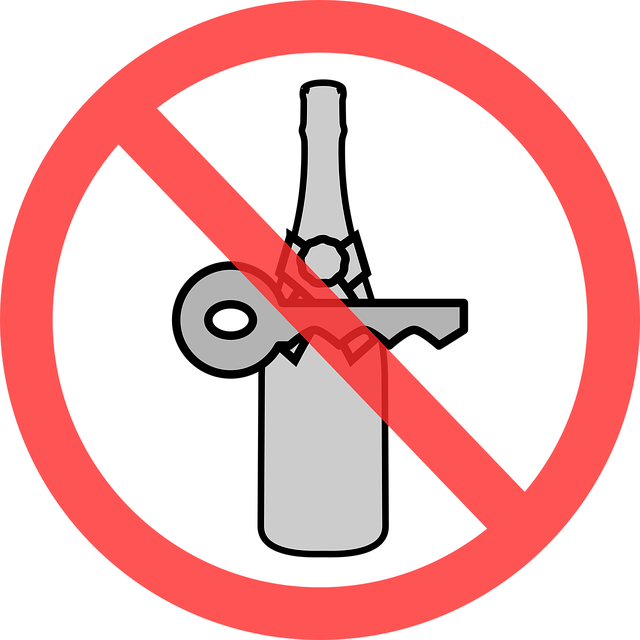Youth DUI is a critical issue, but it can be addressed through Youth DUI Prevention Programs that empower young people with knowledge and skills to make responsible decisions. These programs, often involving community service, provide a platform for redemption, offering participants a chance to give back, learn from mistakes, and inspire others. By focusing on peer pressure, access to alcohol, and real-life stories, these initiatives equip teens with strategies to resist drinking pressures. Effective evaluation, including measurable outcomes and beneficiary feedback, ensures continuous improvement, ultimately contributing to safer communities.
Community service offers a powerful path to redemption and positive change, especially for young individuals facing the consequences of their actions. This article explores the transformative potential of community service in addressing Youth DUI (Drunk Driving Under Age) issues. We delve into the impact and challenges of this phenomenon, offering insights on designing effective prevention programs, engaging at-risk youth, and measuring success. Through real-world case studies, we highlight how community service initiatives can foster personal growth and contribute to safer communities, with a focus on innovative Youth DUI prevention strategies.
- Understanding Youth DUI: The Impact and Challenges
- Community Service as a Form of Redemption
- Designing Effective Youth DUI Prevention Programs
- Engaging Young People: Strategies for Success
- Measuring the Effectiveness of Community Service Initiatives
- Case Studies: Real-World Examples of Positive Change
Understanding Youth DUI: The Impact and Challenges

Youth DUI, or driving under the influence, is a serious issue with profound implications for both individuals and communities. It involves young people making dangerous decisions that can result in severe consequences, including legal penalties, personal injuries, and even fatalities. The impact extends beyond the immediate incident, affecting families, peers, and the wider society.
Challenges in addressing Youth DUI are multifaceted. Prevention requires a holistic approach, targeting not just the behavior but also its underlying causes, such as peer pressure, lack of awareness, and easy access to alcohol. Effective programs must engage youth in meaningful ways, fostering responsible decision-making skills and promoting healthy alternatives to drinking and driving. Youth DUI Prevention Programs play a crucial role in educating young people about the risks and offering support systems to make amends for their actions.
Community Service as a Form of Redemption

Community service, particularly through initiatives like Youth DUI Prevention Programs, offers a powerful avenue for redemption and positive change. For individuals who have made mistakes or faced legal repercussions, such as those involved in underage drinking and driving incidents, community service can be transformative. It provides an opportunity to give back, learn from their experiences, and make amends to their communities.
By participating in these programs, young people can develop a deeper sense of responsibility, gain valuable insights into the impact of their actions, and contribute to a safer environment. Through acts of service, they can rebuild trust, strengthen connections within their community, and potentially inspire others to avoid similar paths. This form of redemption goes beyond punishment; it fosters growth, empathy, and a renewed commitment to making a positive difference.
Designing Effective Youth DUI Prevention Programs

Effective Youth DUI prevention programs are designed to empower young people with knowledge and skills, fostering a culture of responsibility and safety. These initiatives should go beyond simply educating about the legal consequences of drinking under age; they must address the underlying peer pressure, curiosity, and access to alcohol that contribute to risky behaviors. Engaging activities, real-life stories, and interactive workshops can help young individuals understand the impact of their choices and develop strategies to resist pressures to drink.
Community-based approaches are key to success. By collaborating with schools, local organizations, and law enforcement, these programs can reach youth where they spend most of their time. Utilizing peer mentors and role models who share personal stories of making amends after DUI incidents can be particularly impactful. This not only humanizes the issue but also provides relatable examples that resonate with young people, encouraging them to make different choices and take responsibility for their actions.
Engaging Young People: Strategies for Success

Engaging young people in community service and amends is a powerful strategy, especially for at-risk populations like those affected by Youth DUI Prevention Programs. The key to success lies in creating meaningful connections and tailoring initiatives to resonate with their interests and concerns. One effective approach is to involve teens in leadership roles within these programs, empowering them to take ownership of preventing peer drinking and driving. This not only encourages active participation but also fosters a sense of responsibility and community involvement from an early age.
To capture their attention, organizations should incorporate innovative methods such as social media campaigns, community art projects, or youth-led workshops focused on safer alternatives to alcohol consumption. These strategies can help dispel myths and offer positive distractions, making the experience engaging and impactful. Building strong relationships with local schools, community centers, and youth groups is also vital, ensuring a consistent support network and fostering trust in these initiatives as a long-term solution for a safer future.
Measuring the Effectiveness of Community Service Initiatives

Evaluating the success of community service initiatives, such as Youth DUI Prevention Programs, is crucial to understanding their impact and potential for growth. Measuring effectiveness goes beyond mere numbers; it involves assessing tangible outcomes and long-term behavioral changes. By tracking participation rates, survey responses from beneficiaries, and the reduction in recurring incidents, organizations can gauge the reach and resilience of these programs.
For instance, successful Youth DUI Prevention Programs might demonstrate heightened awareness among young adults, leading to increased responsible drinking habits and a notable decline in alcohol-related accidents or arrests. Such initiatives also benefit from feedback loops, where regular communication with participants reveals insights into program strengths and areas for improvement, ensuring their ongoing relevance and effectiveness.
Case Studies: Real-World Examples of Positive Change

Community service, when effectively implemented, can serve as a powerful tool for making amends and fostering positive change in society. Case studies from around the globe offer compelling examples of this transformation. For instance, Youth DUI Prevention Programs have made significant strides in raising awareness and reducing drunk driving among teenagers. By organizing community events, workshops, and peer-to-peer educational sessions, these programs have not only empowered young individuals to make safer choices but also fostered a culture of responsibility and accountability.
Another notable example is the restoration of urban spaces through community service initiatives. In many cities, volunteers have taken it upon themselves to beautify public areas, plant trees, and clean up parks. These efforts have led to improved aesthetics, enhanced quality of life for residents, and stronger community bonds. Such real-world applications demonstrate that community service can be a game-changer when it comes to addressing local issues and creating lasting positive impacts.
Community service, as a strategy for addressing Youth DUI, offers a powerful path towards redemption and positive change. By engaging young people in meaningful service projects and education, we can prevent future incidents of impaired driving and foster a culture of responsibility. Effective youth DUI prevention programs, built on solid strategies and measured outcomes, have the potential to create lasting impacts, ensuring safer communities for all. Through real-world case studies, it’s evident that community service initiatives can be successful in redirecting behaviors and making amends for past mistakes. By investing in these programs, we empower young individuals to take ownership of their actions and contribute to a brighter future.






